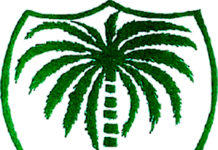

Improving Management of Marine Resources: A Comparative Report on the SLPP’s 2018 Manifesto Commitments and Achievements
By the Sierra Leone Live Team
Welcome to Sierra Leone Live’s comprehensive analysis and comparison of the Sierra Leone People’s Party (SLPP) “Improving Management of Marine Resources” commitments as outlined in their 2018 “New Direction” manifesto. This exercise forms part of our broader campaign aimed at measuring the extent to which the SLPP fulfilled its election promises and assessing the effectiveness of its leadership over the last five years.
In this analysis, we will dissect the manifesto’s key objectives in managing marine resources, juxtapose them with the achievements documented after five years, and provide an unbiased view of the party’s performance in this sector. To make this interactive and promote civic engagement, Sierra Leone Live will provide 25 questions alongside the analysis. This will help you, the citizens of Sierra Leone, critically evaluate the performance of the SLPP and decide if they have met their 2018 manifesto targets.
Good Governance and Sustainable Management of the Fisheries
Manifesto: The manifesto outlined plans for strengthening the policy and regulatory framework of fisheries. This included revising existing fisheries policies, developing a strategic action plan, and conducting institutional and management reviews. It also focused on registering all fishing vessels and improving the data collection system.
Achievement: The government achieved several of these goals. It enacted the Fisheries and Regulations Act 2021 and developed the Aquaculture and Inland Fisheries and Regulatory Framework. The surveillance of the country’s waters improved, along with the enhancement of the fishing license scheme. A comprehensive fish stock assessment was also carried out. Thus, these accomplishments show a high level of adherence to the manifesto goals.
Reduction of Illegal Fishing
Manifesto: The Manifesto is aimed at establishing a legal and regulatory environment for combating illegal fishing and revitalizing the Joint Maritime Committee (JMC).
Achievement: The improved monitoring and surveillance systems and enhanced fisheries license scheme both contribute to the reduction in illegal fishing. They made no specific mention of the JMC in the achievement report.
Improved Handling of Fish and Fisheries Products
Manifesto: The manifesto included constructing fish landing site clusters, building or rehabilitating existing landing sites, training on hygiene practices, rehabilitation of laboratories, strengthening export capacities, and facilitating the establishment of micro-credit facilities for women engaged in fisheries.
Achievement: Five cold rooms were constructed in different districts, and solar-powered cold room facilities were built in key fishing communities, improving fish handling and quality. However, the achievements document does not explicitly mention training on hygiene practices, rehabilitation of laboratories, or facilitation of micro-credit facilities for women in fisheries, showing areas of unfulfilled commitments.
Aquaculture Development
Manifesto: The manifesto aimed at developing a regulatory framework for sustainable aquaculture, constructing pilot hatchery stations, developing a business model and market analyses for feed production and farming technology, and identifying linkages between wild fisheries and aquaculture.
Achievement: The government developed six commercial fish farms across the country, signifying some progress in aquaculture development. However, it is not clear if the manifesto’s specific goals regarding the development of a regulatory framework, hatchery stations, business models, and analyses were achieved.
Additional Achievements not specifically outlined in the manifesto but included in the report:
- The sector’s contribution to GDP increased from 8% in 2018 to 12% in 2023, signifying the growing importance of fisheries in the country’s economy.
- A $55 million grant was secured from the Chinese Government to construct a fish harbour and ancillary structures in the Black Johnson, Western Area Peninsular.
The SLPP appears to have made significant progress in the areas of policy and legislative framework, surveillance, and infrastructure development. However, some manifesto commitments, particularly around training, rehabilitation of laboratories, and facilitating microcredit for women in fisheries, are not clearly reported as achievements. The government has also made progress in areas not explicitly stated in the manifesto, such as securing external funding and growing the fisheries’ contribution to the GDP. It’s also worth noting that the COVID-19 pandemic may have affected the realization of some goals.
We have now come to the end of our analysis of the “Improving Management of Marine Resources” section of the SLPP’s 2018 manifesto. As Sierra Leone Live, we hope this has provided you with insightful, transparent, and useful information to assess the performance of the SLPP over the past five years in this sector.
We appreciate your time and commitment to engaging with this process. An informed citizenry forms the backbone of a thriving democracy. We urge you to examine the 25-question survey provided in a separate post to further interact with this analysis and express your opinions.
Thank you for your continued trust in Sierra Leone Live as your reliable source of balanced and accurate information. Together, we contribute to the prosperity and democratic health of our beloved nation, Sierra Leone.
Here are the 25 Questions
https://sierraleonelive.com/improving-management-of-marine-resources-25-key-questions-assessing-the-fulfillment-of-the-slpps-2018-manifesto-commitments/



